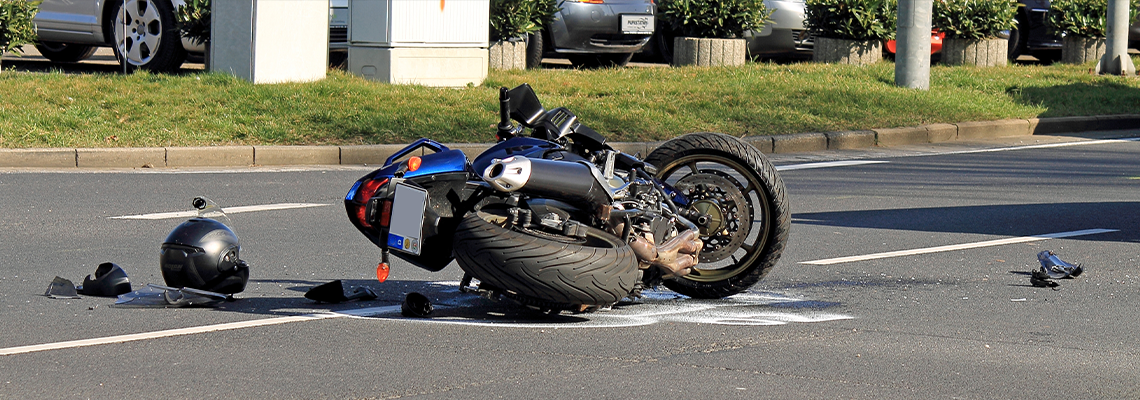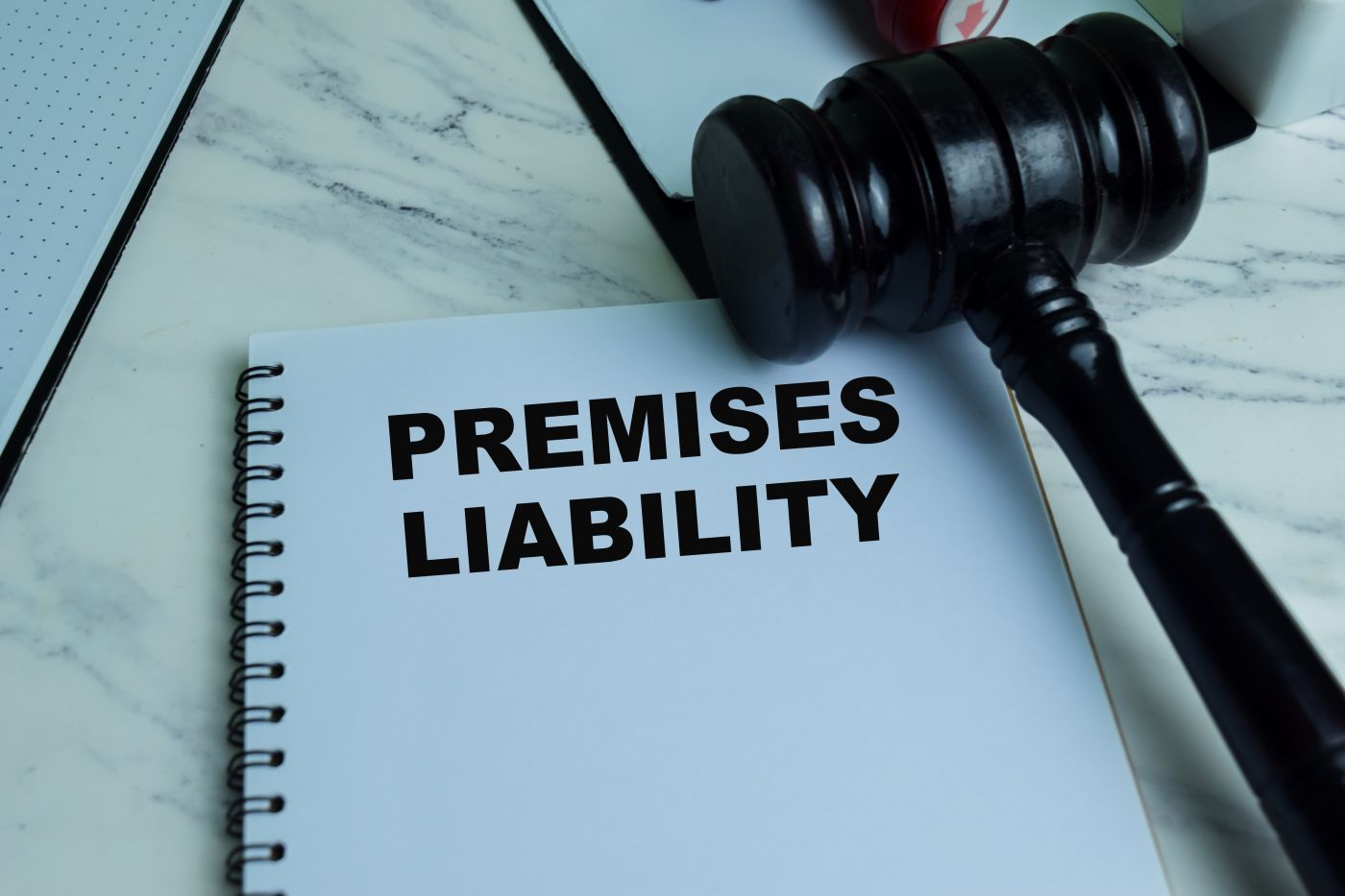
Motorcycles offer freedom, exhilaration, and convenience for millions of riders across the country. However, when motorcyclists are involved in personal injury cases after an accident, they often face an uphill battle due not only to the legal complications of proving fault and damages but also to deep-seated social biases and misconceptions.
During personal injury trials, many motorcyclists find themselves fighting against unfair assumptions. At The McCallister Law Firm, P.C., in Kansas City, Missouri, we’re here to help.
Let’s explore the most common biases against motorcyclists in personal injury trials and what experienced personal injury attorneys can do to help their clients overcome these challenges.
The “Reckless Biker” Stereotype
One of the most pervasive biases against motorcyclists is the assumption that they’re inherently reckless or aggressive. Popular media often portrays motorcyclists as rule-breakers - racing through traffic, weaving between cars, or performing dangerous stunts. While some riders do engage in risky behavior, it’s unfair and inaccurate to paint all motorcyclists this way.
How This Assumption Affects Trials
Jurors in a motorcycle accident trial may unconsciously believe that a motorcyclist is more likely to be at fault in an accident, even when the evidence says otherwise. This bias can color their interpretation of witness testimony or accident reconstruction reports, leading to reduced awards or even verdicts against the motorcyclist.
Legal Strategy in This Situation
A skilled personal injury attorney will work to humanize their client, showcasing the rider as a responsible individual who follows traffic laws and takes safety seriously. Expert testimony and clean riding records can also help dismantle this stereotype. This is just one of the reasons an experienced lawyer is essential. Contact The McCallister Law Firm, P.C., to discuss your case.
Visibility Bias Against Motorcycles
Another common theme in motorcycle accident cases is the claim by drivers of larger vehicles that they simply "didn't see" the motorcycle. While this may be a genuine issue due to the smaller size of motorcycles, it often shifts blame away from negligent drivers. This excuse frequently serves as a convenient way to avoid accountability.
How This Assumption Affects Trials
Jurors may be inclined to sympathize with a driver who claims they didn’t see the motorcycle, especially if they themselves have experienced a close call with a motorcyclist. This can unjustly shift partial or full fault onto the rider. The emotional impact of a driver’s admission of “not seeing” the motorcycle can outweigh objective evidence, leading to biased fault determinations.
Legal Strategy in This Situation
Attorneys can counter this bias by emphasizing the legal duty of all drivers to remain vigilant and aware of their surroundings. Additionally, expert witnesses can explain common driver behaviors and blind spots to clarify that failure to see a motorcycle is often due to negligence rather than an unavoidable accident.
Helmet Bias Against Motorcyclists
Whether a motorcyclist was wearing a helmet at the time of an accident can have a disproportionate influence on jury decisions. Even in states where helmets are optional for certain riders, not wearing one may be viewed as irresponsible or contributory to injury. This bias often oversimplifies complicated injury causation and unfairly penalizes riders.
How This Assumption Affects Trials
If a rider wasn't wearing a helmet, jurors may be less inclined to award damages, even for injuries that have nothing to do with the head or neck. Conversely, even helmeted riders may face skepticism if their injuries are severe, as jurors might assume helmets should offer full protection. Such misconceptions can lead jurors to minimize the defendant’s liability.
Legal Strategy in This Situation
Attorneys must clearly distinguish between injuries that a helmet would and wouldn’t prevent. Expert medical testimony is crucial in demonstrating that the injuries suffered would have occurred regardless of helmet use. Presenting scientific data and medical expert opinions helps to dismantle common myths and keep the focus on the at-fault party’s negligence.
Assumption of Speeding or Lane-Splitting
In many personal injury cases involving motorcycles, there's an automatic assumption that the rider was speeding, weaving through traffic, or lane-splitting, even when there's no evidence to support these claims. These misunderstandings can unfairly taint the rider’s reputation and prejudice the jury before all facts are considered in a motorcycle accident case.
How This Assumption Affects Trials
These assumptions can lead jurors to believe the motorcyclist contributed to or caused the accident, even when witnesses or data suggest otherwise. This bias can reduce the amount of compensation awarded or shift comparative fault onto the rider. Such preconceptions often make it harder for jurors to objectively evaluate the rider’s conduct.
Legal Strategy in This Situation
Strong accident reconstruction, witness testimony, and analysis of vehicle damage and skid marks can dispel these assumptions. Attorneys should educate the jury about lawful riding practices and explain how normal, safe maneuvers can be misconstrued as reckless. Providing clear, factual explanations helps jurors separate fact from misconception
Injury Severity Bias Against Motorcyclists
There is an underlying belief among some jurors in motorcycle accident trials that motorcyclists “know what they’re getting into” and therefore should bear the consequences of more serious injuries. This bias diminishes the responsibility of negligent drivers and minimizes the value of the rider’s pain and suffering. Such a mindset unfairly penalizes riders for risks they didn’tt create.
How This Assumption Affects Trials
This line of thinking can result in juries awarding less in damages or dismissing certain non-economic losses. It also subtly shifts fault from the actual cause of the accident to the rider's choice of transportation. As a result, injured motorcyclists may struggle to receive fair compensation for medical bills, lost wages, and emotional trauma.
Legal Strategy in This Situation
Personal injury attorneys must reframe the issue: the motorcyclist’s mode of transportation does not give other drivers the license to behave negligently. Using comparative risk analogies can help make this point stick. By emphasizing the duty of all drivers to exercise care regardless of the vehicle type, attorneys can shift focus back to the at-fault party’s negligence.
Jury Composition and Preconceived Notions
The attitudes and demographics of a jury pool for a motorcycle accident trial can significantly impact the outcome. Jurors with little or no exposure to motorcycling may harbor misconceptions or be influenced by cultural stereotypes. These preconceived notions can create unconscious bias that affects how jurors interpret testimony and evidence.
How This Assumption Affects Trials
Jurors who have never ridden a motorcycle or who have negative views of motorcyclists may be less sympathetic to the plaintiff. This can subtly influence their evaluation of evidence and their final judgment on damages and liability. Such biases can result in jurors disproportionately blaming the rider or minimizing the severity of their injuries.
Legal Strategy in This Situation
Voir dire (jury selection) is a critical phase where attorneys can identify and challenge jurors with strong biases. Questioning jurors about their driving habits, perceptions of motorcycles, and personal experiences can help weed out those likely to hold harmful assumptions. This careful selection process is essential to forming a fair and impartial jury for a motorcycle accident trial.
Speak With a Personal Injury Lawyer Today
Motorcyclists are legally entitled to share the road and to seek full and fair compensation when they’re injured due to someone else’s negligence. Unfortunately, biases against motorcyclists remain a significant barrier to justice in personal injury trials. At The McCallister Law Firm, P.C., we help clients in Kansas City, Missouri and beyond seek compensation for motorcycle accidents. Contact us today to set up a consultation regarding your case.



